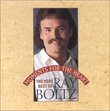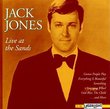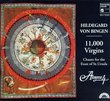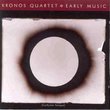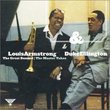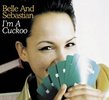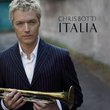| All Artists: Camillo Meghor, Claudio Nicolai, Gerd Nienstedt, Heiner Horn, Bernd Alois Zimmermann, Michael Gielen, Helga Jenckel, Liane Synek, Gürzenich-Orchester, Karl-Josef Görgen, Wolfgang Sebastian Meyer, Edith Gabry, Albert Weikenmeier, Anton de Ridder, Heribert Steinbach, Hubert Mohler, Norman Paige, Willi Brokmeier Title: Zimmermann: Die Soldaten Members Wishing: 1 Total Copies: 0 Label: Wergo Germany Original Release Date: 1/1/2008 Re-Release Date: 3/11/2008 Album Type: Import Genre: Classical Styles: Opera & Classical Vocal, Chamber Music, Historical Periods, Classical (c.1770-1830), Modern, 20th, & 21st Century Number of Discs: 2 SwapaCD Credits: 2 UPCs: 400000005843, 4010228669824 |
Search - Camillo Meghor, Claudio Nicolai, Gerd Nienstedt :: Zimmermann: Die Soldaten
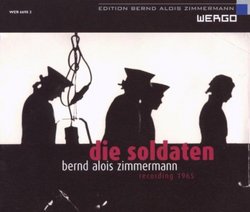 | Camillo Meghor, Claudio Nicolai, Gerd Nienstedt Zimmermann: Die Soldaten Genre: Classical
|
Larger Image |
CD DetailsSimilarly Requested CDs
|
CD ReviewsPowerful, Startling Experience Sean Coxen | Hyattsville, MD United States | 01/06/2010 (5 out of 5 stars) "Zimmermann's "Die Soldaten" (The Soldiers) is a complex opera with a complex history. Zimmermann's initial score was deemed unplayable by the Colgne Opera (who commissioned it), but that didn't discourage the composer. He overhauled the work and by 1965 it was finally premiered in Cologne after a great deal of preparation.
I will not document Zimmermann's extensive, rigidly academic ideas on music theory and drama, only to say that he was an expressionist of the Schoenberg school with an unrelenting focus on form, and he conceived of something called the "spherical shape of time", which means that past, present and future occur simultaneously. Using this latter device, he stages several scenes at once, making for dense textures. Though using the tone row method, he incorporates diverse idioms such as Gregorian chant, Bach chorale and jazz. He also uses film and audio tape as scenic elements. I do advise further reading into the matter to fully appreciate Zimmermann's genius and his unparalleled scope on music drama. Often called the successor to Berg's "Wozzeck", the story comments on the dehumanization of the military system. In 18th century Flanders, a town girl (Marie), engaged to a clothier (Stolzius), is pursued by a wealthy army captain (Desportes); Marie's father encourages the relationship as he sees lucrative possibilities. Desportes eventually abandons Marie, handing her off to his fellow afficers for their amusement. In order to save her reputation, she becomes a companion to Countess de la Roche, but her son's interest in Marie urges the countess to let her go. Stolzius murders Desportes, then kills himself. Meanwhile, Marie has become a common streetwalker and in the final scene begs for money from her father, whom she encounters in the street. The father does not recognize her. The opera closes with perpetual miltary drumbeats. Zimmermann's music is not for every taste. The score employs a large orchestra and a huge battery of percussion, including plates and cutlery in a tavern scene. Also, an electric guitar is featured prominently in a jazz ballet sequence. For those who appreciate 20th century expressionism, Zimmermann's music simply startles. The seemingly impossible score is given surprisingly clear shape and direction by Michael Gielen conducting the Guerzenich Orchestra. I've read that Gielen disavowed this recording: I don't know why; this is a stunning testament to his talent. The cast is culled almost entirely from the Cologne roster of singers, who unfailingly do a marvelous job. Edith Gabry (Mrs. Istvan Kertesz) was not a major singer, but her accurate, high lyric soprano with coloratura proficiency and a note of plangeancy in the timbre suits Marie perfectly. She presents a heartwrenching portrayal, almost devastating in its truthfulness. Baritone Claudio Nicolai is just as effective as Stolzius, really singing the part with sympathetic tone and feeling. The moment of his psychological unhinging is bone-chilling. Anton de Ridder is a monochromatic Desportes, but he copes with the cruelly high tessitura and comes across well as an insensitive brute. Other cast members worth singling out: Zoltan Kelemen as Marie's father; Liane Synek (a superb Brunhilde and Isolde) as the Countess; Willi Brokmeier as her son; Albert Weikenmeier, Heiner Horn and Gerd Nienstedt as a verbose, obnoxiously opinionated trio of officers. The others too are excellent. The set includes an extensive booklet with notes and full libretto. The cast, orchestra and conductor, incidentally, are the same as those of the world premiere. Alas, the recording, albeit studio 1965, was recorded in mono, a major let down since this opera demands good stereo separation to make its fullest impact. Even so, this is a remarkable set, brilliant even. You may well be emotionally exhausted by the end, but this pays tribute to the effectiveness of the performance. It surpasses a more modern Teldec recording made in the 1990's, now out of print. " |

 Track Listings (12) - Disc #1
Track Listings (12) - Disc #1